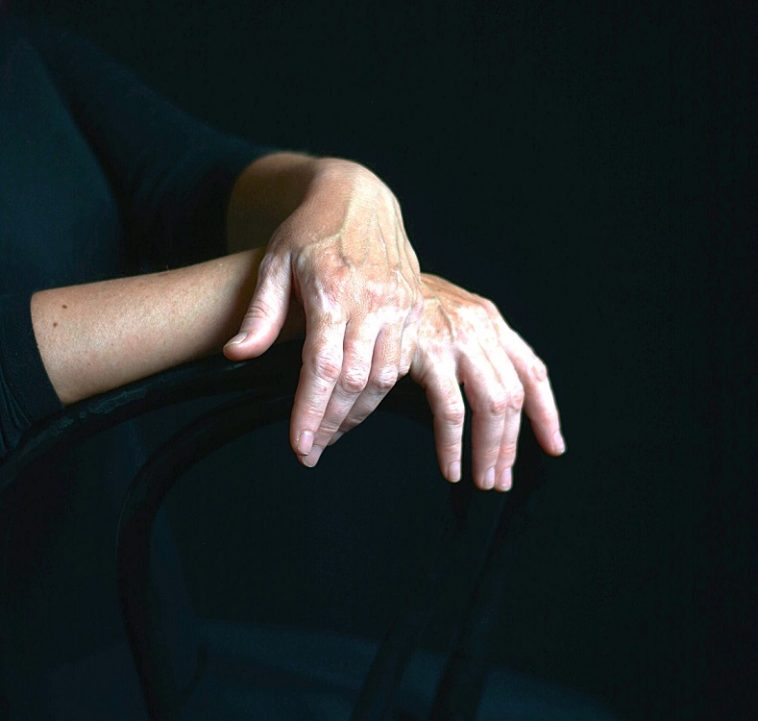Depression in vitiligo is a serious matter that unfortunately doesn’t get talked about enough. Why? Vitiligo induced depression isn’t seen physically. It’s the white patches that become a huge deal, not the mental health in vitiligo. Let’s face it; who takes eating a tub of ice cream in one go and trouble sleeping at night seriously.
However, if left untreated depression in vitiligo can completely wreck your daily routine and severely deteriorate the quality of your personal, social and professional life. But, how would you know if you are depressed or not? Merely feeling sad can make us think that we’re depressed, but that’s not always the case or is it, let’s find out. Here are 8 warning signs of depression you shouldn’t ignore if you are living with vitiligo.
1. Constantly feeling down and tired
Feeling little down from time to time is completely normal. We are only human, and we all have our bad days. But, when you start feeling hopeless and don’t want to get out of bed for days that are where it gets into dangerous territory. If your lack of energy lasts for days and you feel tired as soon as you wake up, this may be your body’s way of telling you that you are in fact depressed.
2. Low self-esteem
Your self-esteem may hit rock bottom with depression and constant fatigue. You might start seeing yourself as ugly due to vitiligo. You’ll continuously dwell on your past, and you’ll probably see yourself as entirely worthless.
3. Concentration and memory problems
According to experts, when you’re depressed your concentration suffers big time. You start forgetting and experience trouble remembering names. Listening to someone talk or keep reading a book also becomes a challenge since you can’t focus on what’s going on. Making decisions is incredibly tricky too as you just can’t put your finger on anything or ignore this hopeless feeling inside of you.
4. Trouble sleeping
Another aspect that significantly impacts depression in vitiligo is the weird sleeping pattern. This can be observed in the form of either insomnia or sleeping for more extended hours. You’ll crave more sleep even after a full night’s rest, and it will feel like you could spend the whole day in bed.
5. Weight changes
With all the emotional roller coasters you go through, your appearance is bound to change. Depression can make you gain several pounds, or your weight may drop drastically. In fact, many specialists say that if you observe an unintentional change of more than 5% in your body weight within a month, it could be a sign of depression.
6. Nothing brings you pleasure
Your favorite food or TV show that once brought you joy is now just sort of meth. People that you adore and love hanging out with don’t seem to do it for you anymore. You’re always bored, tired and have no desire to peruse a hobby or meet up with your friends.
Another area you may lose interest in is your sex life. Symptoms of depression in vitiligo include decreased sex drive and even impotence.
7. Mood swings
When you’re depressed, you always feel sad, anxious or irritated and you probably can’t even explain why you suddenly become extremely short-tempered with a lack of decent tolerance. Everything and everyone annoys you to no end. This can get especially scary when it turns into reckless behavior or substance abuse as an attempt to get rid of all these emotion mismanagement in vitiligo.
Tears in a blink of an eye, heavy breathing, sweating and extreme nervousness can be especially alarming symptoms of anxiety and panic attacks, associated with severe depression.
8. Deteriorating health
Emotional outbursts and a constant feeling of hopelessness can wreck your overall health. You suddenly start experiencing aches and pains, most frequently in the joints. Digestive problems also are a huge concern in this situation, especially when they aren’t brought on by what you ate. These symptoms don’t go away with usual medical treatment.
What can help?
The earlier you deal with your depression, the easier it’ll be for you to get back to good health. You can:
-
- Take care of your body. Start doing 30-minute workouts at least three times a week.
-
- Get at least seven hours of sleep a night.
-
- Add more of your favorite food(s) to your diet.
-
- Try to explore the world around you.
-
- Enjoy some free time with yourself.
- Take new skill development classes and open up your mind to new experiences.

